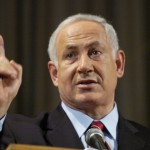Saturday
Jan232010
Gaza: United Nations Warning on Health Situation
 Saturday, January 23, 2010 at 8:44
Saturday, January 23, 2010 at 8:44  The United Nations has warned that the health situation in the Gaza Strip is deteriorating and called on Israeli officials to immediately open the border crossings.
The United Nations has warned that the health situation in the Gaza Strip is deteriorating and called on Israeli officials to immediately open the border crossings.“The continuing closure of the Gaza Strip is undermining the functioning of the health care system and putting at risk the health of 1.4 million people in Gaza,” Max Gaylard, the UN Humanitarian Coordinator for the occupied Palestinian territory, said in a joint statement with the Association of International Development Agencies.
Palestine: Hamas to Recognize Israel?
Repair and maintenance of facilities are hampered because construction materials are not allowed into the territory. (During Operation Cast Lead, 15 of Gaza’s 27 hospitals were damaged and 43 of its 110 primary health-care facilities were either damaged or destroyed.) Certain types of medical equipment, such as x-ray equipment and electronic devices, are very difficult to bring in, and health professionals in Gaza have been cut off from the outside world.
The World Health Organization (WHO) also stated that many specialized treatments, such as for complex heart surgery and certain types of cancer, are not available in Gaza and patients are therefore referred for treatment to hospitals outside Gaza. However, many patients have had their applications for exit permits denied or delayed by the Israeli authorities and have missed their appointments, with some dying while waiting for referral.
“The Government of Israel has a legal duty to guarantee the right to health for people in Gaza. The humanitarian community calls for the crossings into Gaza to be reopened,” concluded the statement.




